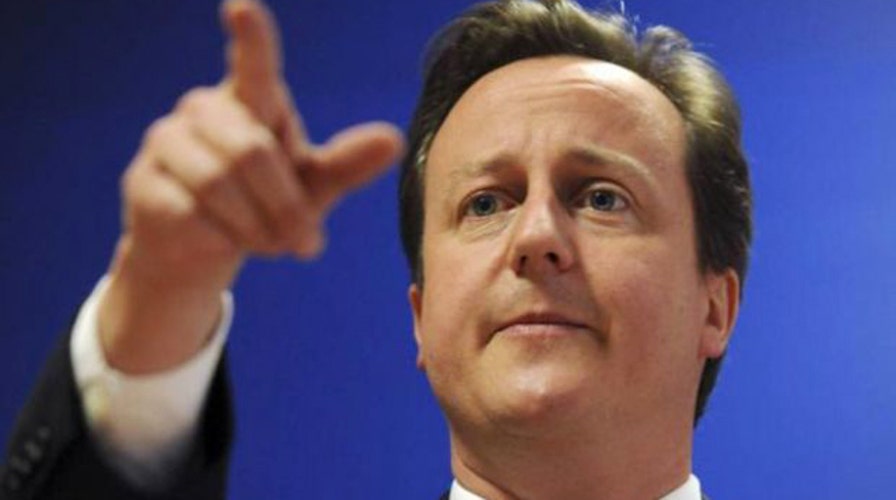Nile Gardiner: Cameron's victory 'very good news' for the US
What landslide conservative win in UK means for global terror fight
It was an extraordinary night for British politics. Greatly exceeding expectations, the Conservative Party, led by Prime Minister David Cameron, surged in Thursday’s U.K. General Election, winning 330 parliamentary seats, enough to form a majority in the House of Commons. The socialist Labour Party won just 232 seats, and the Liberal Democrat vote collapsed, securing only 8 seats. The Scottish National Party won 56 seats in Scotland, and the UK Independence Party (UKIP) won just one seat, despite receiving over three million votes.
For the last five years, the Conservatives had been forced to share power with the Liberal Democrats. However, the emphatic nature of Thursday night’s victory now gives Conservatives a clear mandate to govern without a coalition.
Yet Mr. Cameron has but a small majority of just a few seats. He will need to cultivate support from the Democratic Unionist Party (which won eight seats) on an issue by issue basis, in order to bolster his government, as well as the U.K. Independence Party. David Cameron has declared that he will serve only one more term in office and is expected to be replaced before the next general election in 2020 by a new leader of the Conservative Party.
The Labour Party, headed by Ed Miliband, dramatically underperformed in this election. The British electorate clearly had cold feet when it came to voting for an uncharismatic, left-wing socialist leader who vowed to reverse the successful economic policies of the Conservative-led government. Miliband’s big government, heavy spending, high tax agenda failed to capture the hearts of Middle England, and British voters opted instead for the free market approach put forward by the Conservatives. The wide-reaching welfare reforms, headed by Secretary of State for Work and Pensions, Iain Duncan Smith, also proved popular with the British electorate.
The idea that Britain is becoming a more liberal country is a myth. From government spending to immigration, the U.K. has become more, not less, conservative in recent years on most key issues.
The election showed that Britain remains, at heart, a conservative nation. With votes split among a dozen parties, the two main center right parties—the Conservative Party and UK Independence Party (UKIP)—won 49.4 percent of the total vote. In England, the Right was dominant in terms of the overall vote.
The idea that Britain is becoming a more liberal country is a myth. From government spending to immigration, the U.K. has become more, not less, conservative in recent years on most key issues. The Conservative Party would have secured an even greater share of the vote had David Cameron not alienated many grassroots supporters with highly controversial “modernizing” policies such as backing gay marriage and increasing spending on foreign aid, both deeply unpopular with the Conservative base.
Significantly, the election means that Britain will vote two years from now to decide its future in Europe. David Cameron has pledged to hold a referendum on Great Britain’s membership of the European Union in 2017. Ed Miliband opposed holding a popular vote on the EU, and the defeat of the Labour Party opens the way for the referendum to move forward. If the British people vote to leave the EU, the US-UK Special Relationship will be further strengthened, and Britain will be able to negotiate a free trade agreement with the United States.
The Scottish National Party emerged as the big winner in Scotland, with nearly all of the 59 Scottish seats contested, benefiting from a Labour and Liberal Democrat collapse north of the Border. Despite losing the Scottish independence referendum vote last September, the SNP, led by Nicola Sturgeon, will undoubtedly press for another vote to be held, a call that will be strongly resisted by the British government.

